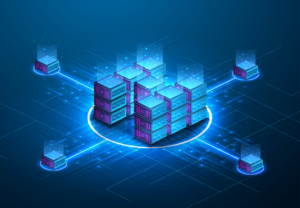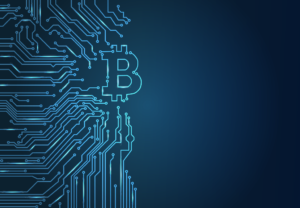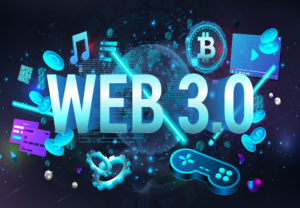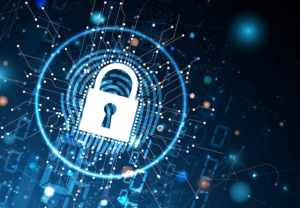Blog
Web 3, The Solution to Internet Control and Privacy
Tim Berners-Lee created the World Wide Web in 1989, and its effect on the world continues to increase. Tim correctly saw the internet as an extremely powerful tool that can be used for the good of others and to make the world a better place.
From its founding, Tim envisioned the internet to be an open platform that could be freely accessed by everyone worldwide, hence the name “world wide web.” It was decentralized, i.e. control was not vested in one or few parties, and everyone was equal in the space.
While the internet has had some controversial impacts, such as the creation of obscure communities who spout hate online, Tim has no regrets for creating the internet. However, there is one thing he would change–centralization.
His critique joins the chorus of people who began creating the new phase of the internet, saying “The direction of the web can’t just be decided by the strongest actors.” The centralization of power of the internet vested into prominent figures sparked the innovation for the next phase of the internet, Web 3.
How Centralization of the Web Affects Users
Google has a hold on businesses and an outright stranglehold on small businesses. All businesses need to rank on Google’s search engine, but small businesses especially do, giving Google an essential monopoly on search, centralized power. Facebook also has a stranglehold on businesses through powerful ad tools, ad space, and its social networking features.
Using these two FAANG members as an example, the services they offer certainly present great value to users and companies, giving financial and social benefits to all parties. However, these platforms could decide that they do not want to support any specific user or business and at any moment wipe them off the site.
If Web 2 companies don’t like what you have to say or what you’re doing, you can be wiped out of the conversation, or your business model could fail just because they felt like it. This is the power centralized Web 2 allows and that level of power is going to get abused.
The main way this power gets abused is through the absolute control of data.
Web 2 Is Constantly Collecting Information About Users
Web 2 companies sold internet data tracking as providing users with “personalized experiences,” with each user only seeing content relevant to them. What actually happened was users became the product, with their information being sold to third parties.
Web 2 companies such as Facebook created free-to-use services, but the reality is that this “free model” is a data-for-service model where you’re the product through your data. Your phone, laptop, assistants, and TV all track significant sums of information from you, and the list of tracked information sounds benign at first, such as the recording of gender, age, and lifestyle choices.
Yet, the amount of information becomes increasingly nauseating as you browse the web: language, music and film choices, location, income, credit and employment status, whether you own a home, how big that home is, facial recognition, political affiliation, marital status, your exact health conditions, and much more.
People seem to understand that they’re being tracked too but approach the problem with a feeling of hopelessness. As many as 6-in-10 Americans believe it’s impossible to go through life without having their data collected by the government or companies. Even worse, 8-in-10 Americans feel they have no control over what data is collected.
So, not only do people not like what online companies are doing with their data, they don’t feel they have any options to do anything about it. As soon as an option for protecting their data becomes available, people will pay large sums of money.
The VPN industry was valued at $25 billion as early as 2019 and keeps increasing because people see security in not having their every move calculated and recorded.
Users are desperate for anything that will help them get control of their data back, which is why Web 3 is gaining…because the next phase of the internet focuses on users. Instead of users being the commodity, they can easily create commodities, either with their data or through their creative efforts.
Web 3 will bring privacy and data security to everyone, opening a better internet to all users.
The Power of a Decentralized, User-First Platform
One of the most significant selling points of Web 3 is turning the Web 2 centralized system and giving it back to the users. Once users have control over the platform and not single institutions, no one can be kicked off just for not agreeing with the centralized authority.
Even better, users will no longer become the product; they create products. They can choose to sell their data or use their time in the metaverse to create digital assets.
An example of this system already exists in Brave. Brave can issue BATs or Basic Attention Tokens to users for watching ad content. Users can then give these tokens to companies or their favorite content creators.
This ecosystem directly benefits and promotes content users enjoy and is good for companies too. They don’t waste ad dollars on users who have no desire to buy the company’s product or service.
Decentralized Web 3 also has fewer weak points. Servers can’t go down unless hackers tear down the entire network. It will be nearly impossible to bring down the combined processing power of the peer-to-peer network.
Payments also don’t have a single point of failure as there are layers of security measures like an identification number and blockchain ledgers. Both happen automatically and frictionlessly.
Learn More
Web 3 does have its drawbacks because it’s not quite mainstream yet. But that means early adopters have a ripe opportunity to take advantage in a way others can’t. If Web 3 produces another set of FAANG-like companies, you’ll be the first one on board with all the advantages that come with it.
This is your time to learn about Web 3 while you can and maximize your chance to participate. Join us at the Wynn Las Vegas for the latest Web 3 convention.








